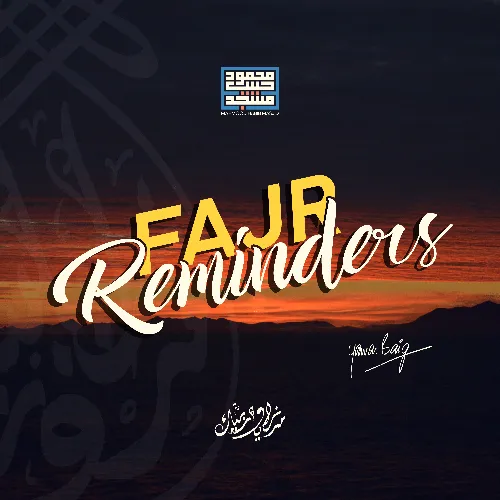Is this my last Ramadan? – #2
- Author
- Fajr Reminders - Mahmood Habib Masjid and Islamic Center
- Published
- Wed 26 Feb 2025
- Episode Link
- https://mhmic.org/fajrreminders/is-this-my-last-ramadan-2/
Auto-generated transcript:Alhamdulillah Rabbil Alameen. Salat wa Salam ala ashrafil anbiya'i wal mursaleen. Muhammadur Rasoolullah sallallahu alaihi wa ala alihi wa sahbihi wa sallam. Tasliman kathiran kathiran. From Mubadhu. I remind myself and you there are four things to do before we enter Ramadan. Number one, clean our hearts. Clean our hearts. Because Allah said, يَوْمَا لَا يَنْفَرُ مَالٌ وَلَا بَنُونَ إِلَّا مَنْ أَتَى اللَّهَ بِقَلْبٍ سَلِيمٌ In Surah Al-Shura, Allah SWT said, The day when neither wealth nor children, meaning neither money nor power nor any affiliations will be of any benefit except Him who brings to Allah SWT kalbun saleem. A clean heart, a sound heart. Clean from shirk, clean from hypocrisy, from rifah, clean from all sorts of evils. I remind myself and you that on the day of judgment, the only thing that will benefit the slave is a heart that is sound, whole, complete, pure, filled with the love of Allah SWT and His messengers sallallahu alaihi wa ala alihi wa sahbihi wa sallam. A heart that Allah SWT guided to Himself and therefore that we have to beg Allah and which remains steadfast on that path by following the sunnah of Rasulullah sallallahu alaihi wa sallam, which is the best of guidance. خير الحدي, حدي محمد صلى الله عليه وسلم. The best of guidance is the guidance of Rasulullah sallallahu alaihi wa sallam. A heart that is free from hatred, enmity, jealousy, greed, envy, fear of anyone other than Allah. A heart that is filled with the glory and majesty and kharshith and the hubb and the love of Allah SWT and the love of His messenger Muhammad sallallahu alaihi wa sallam. May Allah grant us such hearts. They have to be worked for. Dua alone is not enough. And the first thing to do in this case is forgive everyone. Whoever you are carrying rancour about in your heart, forgive them. It does not matter what they did. Forgive them for the sake of Allah. Say to them, if they are alive, if they are not alive, go to their khabr, go to their grave, stand there and say, I forgive you for the sake of Allah. Not that they can hear you. Don't say that now this is the dhaleel that the people in the grave cannot hear you. Somebody asked me then why do we say, Assalamu alaikum ya ahlul khubur. So I said that is a dua. May peace be upon you, O people of the grave. Because if you get a reply saying, wa alaikum wasalaam ya abdul ghafoor, you will be in trouble. Right? Forgive. It doesn't matter what they did. It does not matter what they did. Forgive for the sake of Allah. And then say to Allah, Ya Rabb, you know what this person did. You know I have been wrong. You know I am not at fault. You know this person has aggressed against me. But I forgive this person for your sake, so you forgive me. Nobody said it's easy. But that is the solution. That is the solution. That is the key. So ask yourself, do you want Allah subhanahu wa ta'ala to forgive you? Forgive people. You want Allah subhanahu wa ta'ala to cover your faults? Cover the faults of people. Don't point fingers. You want Allah to hide you and cover you with His lihaf, to cover you with His glorious cover that people see and they praise and they are praising the cover, they are not praising you because Allah has hidden you. You want that? Then hide people. Hide the faults of people. Fasting in what comes out of the mouth, not just what goes into the mouth. Because it's not only about not eating and drinking, it's about reba and slander and brutan and namima and innuendo and casting aspersions and foul language and all of that. And Allah subhanahu wa ta'ala warned us against all of this. You know the hadith of Rasulullah sallallahu alaihi wa sallam where Abu Hurairah radiya allanhu narrated and this is in Sayyid Muslim where Rasulullah sallallahu alaihi wa sallam asked, do you know who are the bankrupt of my ummah? And they said, Ya Rasulullah, the people who have no dirham or dinar and no money and no property. He said, no,
